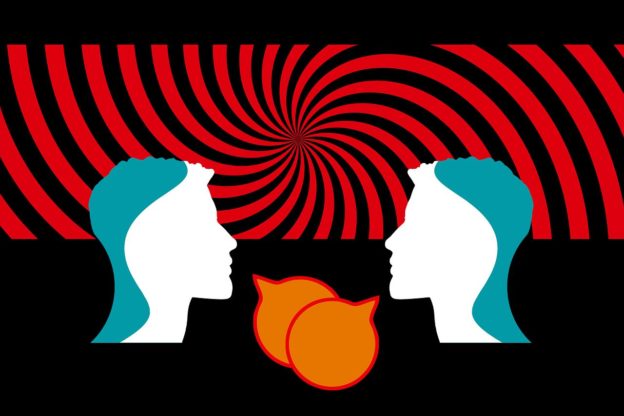What is NLP and why should it be given a chance?
Neuro-linguistic programming encompasses a range of skills, techniques, and models through which you can actively use your mind, emotions, and body to successfully lead your life – and communicate with other people with remarkable efficiency. NLP studies how successful people achieve outstanding results in a wide variety of areas and teaches other people those skills, techniques, and patterns. By changing our mindset and behavior, as well as by raising our awareness, we can reach the desired goal faster and easier.
The term NLP includes three words:
 Neuro – refers to the nervous system and how we communicate with other people through our 5 senses: sight, hearing, touch, smell, and taste. This is how we receive information and create our reality on that basis.
Neuro – refers to the nervous system and how we communicate with other people through our 5 senses: sight, hearing, touch, smell, and taste. This is how we receive information and create our reality on that basis.
Linguistic – refers to how we use language patterns in everyday speech and how other people’s performances can be influenced through speech. The words we use affect our way of thinking, our mood, our way of behavior, our attitudes and actions. They also influence our interlocutors.
Programming – refers to internal processes, ie. programs of thinking, feeling, and behavior, and the possibility that we may replace certain patterns of behavior that are not useful to us (in accordance with our values and goals that we want to achieve).
The popularity of the NLP method grew in the 1970s, when it was discovered that it helps to combat phobias, anxiety, but also positively influence the professional success of an individual, as well as the development of personal happiness.
NLP is used as a method of personal development. Therefore, it is useful for promoting the skills or abilities you have. It helps to develop self-reflection, confidence and communication skills. NLPs can be applied to achieve work-oriented and career-oriented goals such as improved productivity or job progression. With these techniques, it is also possible to improve mental skills, develop creative thinking, overcome stressful situations.
More broadly, it has been used as a therapy for psychological disorders, including phobias, depression, general anxiety disorders, and post-traumatic stress disorder.
Does NLP work for phobias?
The short answer is yes, It does work. But let’s explain it a little.
Phobias can occur without specific traumatic experience, because in addition to extraordinary learning ability, people also have a vivid imagination that sometimes leads them to develop possible scenarios, including those that indicate a potential danger of some phenomena. That is why it is enough that once you look at the panorama of the city from the 16th floor of the building, it comes to your mind that you may fall so that in the future you will have a panic fear every time you approach the window.
It is not enough for others to assure you that there will be nothing for you (you know it on a conscious level). Knowing this does not solve the problem, precisely because the rational mind is suspended when phobic fear arises. Our observation filters are limited so much that they do not register other things. That fear is somewhere in the cells of the body, in the nervous system, and it can be triggered at any time.
NLP therapists use specific methods and tools that function at the unconscious level of the mind and produce phenomenal results.
If we want to free ourselves from unjustified fear, the place where liberation should take place is in the unconscious mind.
NLP techniques can help us with this, helping us break into the root of fear and re-visit that fear-causing event. From this place, our unconscious mind is encouraged to break free from fear and learn a different lesson. to create a new experience and relationship to the event.
At that moment, our fear can transform into our strength and cease to be our obstacle.
Miracles start to happen when you give as much energy to your dreams as you do to your fears.








